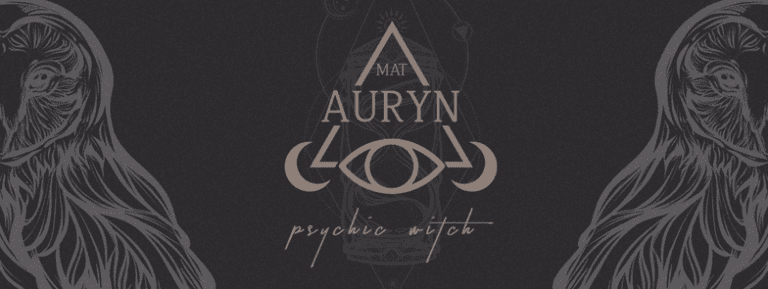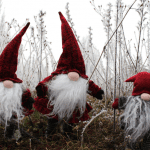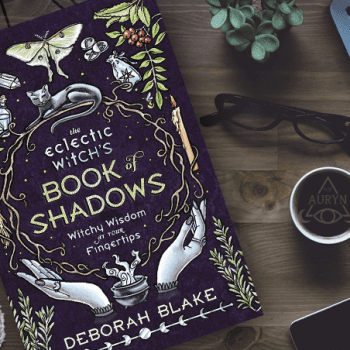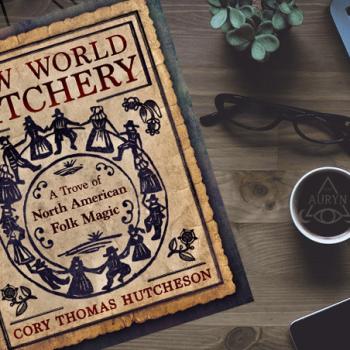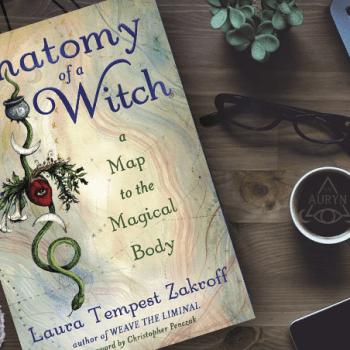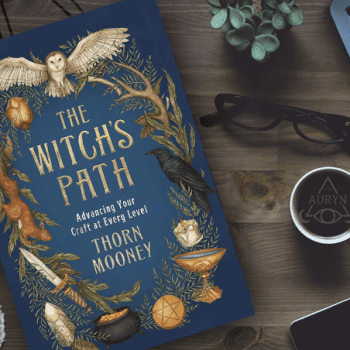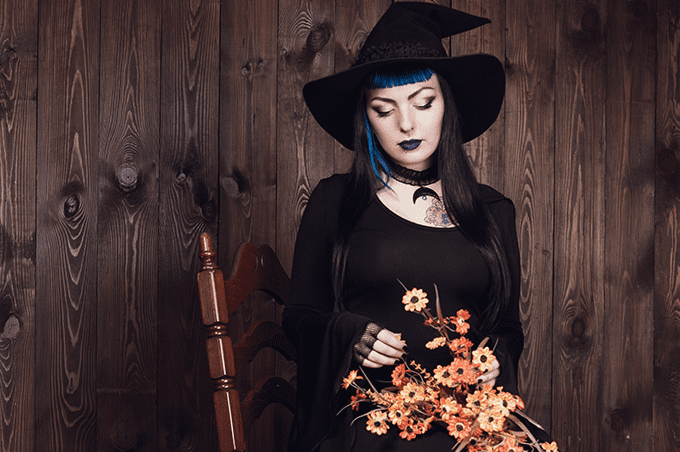
Millennials in general, are often given a bad reputation, usually being the scapegoat for a myriad of things. The rise of those who describe themselves as witches or pagans is at an all time historical high, as millennials turn to witchcraft and paganism in rejection of organized religions. It’s been interesting to watch the differences between millennial witches and previous generations side by side. This led me to ask myself, what type of reforms would I like to see the broader witchcraft community make. By reforms, I don’t mean a complete overhaul and schism like Martin Luther’s Reformation, but rather the everyday definition of “to put or change into an improved form or condition” or “to amend or improve by change of form or removal of faults or abuses.” I was curious as to what other reforms Millennials (and a few Xennials) wanted to see in the future of Witchcraft. So I decided to ask a fairly diverse group of witches that I know are active practitioners what they wanted.
Aveline MacKenzie is a lifelong practitioner of witchcraft trained in several traditions, most recently British Shamanic witchcraft via the lineage of Robert Cochrane:
“Honestly I think the biggest opportunity we have to improve the witchcraft community is to make a concerted effort to decolonize the craft. White supremacy has dominated all aspects of western culture and our own subset of that culture is not immune. I’m not suggesting we flagellate ourselves for past missteps, but now that we know better we must do better. We must engage respectfully with our spirituality, we must take care to avoid appropriation and cherry picking (which is not to decry eclecticism but those of us who practice it must work even harder), and we must work to create environments in which POC are safe, listened to, valued, and deferred to.”
– Aveline MacKenzie
Danielle Dionne is a psychic medium, witch, herbalist and teacher. She runs Moth and Moon Studio, a spiritual education center located in Bedford, NH. She is a member of the Temple of Witchcraft and the Sacred Fires Tradition of Witchcraft.
“I’d like to see more exploration of where traditions and spiritual practices originated. There is a need to engage and confront what has been sourced from other cultures in witchcraft, spiritual and new age traditions with our teachers and community. Now is the time to explore what has been passed down from old and new teachings and challenge ourselves to look at what has been appropriated, especially as white people practicing witchcraft, even if this is uncomfortable for us to face.
We need more opportunities to create and hold space for black people, indigenous people and people of color in witchcraft communities. Personally, and as a community, we need to continue examining mistakes, not being afraid of imperfection when digging into this issue and listening to new ways to grow and incorporate anti-racism practices. By taking responsibility for our own personal and collective healing, we move together in the right direction as a witchcraft community.”
– Danielle Dionne
David Salisbury is a Witch, activist in Washington DC, and author of several books on Witchcraft.
“I think the most needed reform would be eliminating the idea that everyone is a “personal god” to such a degree that some think their divinity entitles them to trample upon others. The screams of “No Pagan Pope!” over the decades are valuable, but in some ways our communities have cheated ourselves out of the benefits of personal responsibility, social equity, and accountability. Be your own god, yes, but recognize the worth and dignity of others by seeing their godhood, too. I think a lot of problems could begin to be addressed with that step.”
– David Salisbury
Devin Hunter is a witch with a background in various traditions, runs a podcast The Modern Witch, and is the author of various witchcraft books. He is the founder of the Sacred Fires Tradition of Witchcraft and a co-founder of Black Rose Witchcraft.
“We can evolve, which I think has been happening rapidly in our modern times. There are two main evolutionary steps I would like to see us make, however. I would love to see less gatekeeping and more personal ownership. Both of these things have already started to happen, especially with the younger generations, and that is super exciting to me.
Gatekeeping is the practice of controlling and limiting access to something. In some cases this is important, as a member of multiple traditions I fully appreciate the value of secrecy. But I’m not talking about traditional secrets, I am talking about the faux glamour of who can be a witch, what makes someone a witch, and any other litmus test people like to come up with. This idea that only some of us are capable of practicing witchcraft is pure fantasy and promotes escapist style elitism. The truth is, witchcraft involves practices that bring real benefit to a person’s life. While some people will find it isn’t for them and others won’t “get it,” I think it is important to let them decide that for themselves. Gatekeeping only serves to further separate us from the world. I think as witchcraft continues to emerge as a common spiritual practice, this will be something we see less and less of. I hope so, anyway.
If I had one more wish it would be to also see more people taking personal ownership over their practices. When I was younger there was a lot of “you must do it THIS WAY as outlined on page 42, OR IT WON’T WORK!” and in reality I found it all to work out better when I used page 42 as a template and did things my own way. This was an empowering revelation to have; there wasn’t one right way of doing things. I think if we as a culture were able to put more emphasis on learning techniques and then going off and being creative with those techniques and less of one on doing things “the right way” we could really see some interesting new material develop. People get hung up on what they think is the final outcome, when in reality it is just an island in an ocean of discoveries. We are nowhere near the end of what witchcraft will become and I think that in order to take it to the next level we need to let people be inspired and do their own thing. Stress respect and awareness, yes. But also, that the goal here is to make these practices their own so that they can continue to evolve and (hopefully) thrive, no matter what they are. We don’t have the puzzle figured out, but we sure as hell have pieces to the board. If we let others take a look and give it a go I bet eventually we will see what the big picture has to offer.”
– Devin Hunter
Elizabeth Autumnalis is a multi-generational witch from New England who works deeply with the genius loci as well as having training in multiple initiatory traditions including the Temple of Witchcraft and Sacred Fires.
“Growing up within the community that I was raised in, by the individuals who raised me, and the near constant drama of it all is actually something that I am oddly thankful for. When things are good you never notice, but when things are bad it’s all you can see. I have spent the last couple of years working deeply through past traumas and quite a few of them stem from the pagan/witchcraft community. It comes from the unenlightened pushing agendas and energy on the children of the next generation rather than doing the work to better themselves. I can’t speak for the community as a whole, but there are things that I have personally found lacking within the community. I can’t act for others, nor do I want to, but I can treat myself as a microcosm of the greater community and make the necessary changes within myself and hope that others do the same in order to change for the better.
I think one of the biggest disconnects of the “community” is that we aren’t one. Ultimately when it comes down to it we are just the leftover weird kids who all kind of get lumped together and form an odd kind of dysfunctional family because of it, but we are all pulling ourselves in opposite directions and tugging each other along as we do it. I think that the best thing that we can do is realize that each and every one of us is sovereign in our own path. I also want to clarify that by “sovereign” I don’t mean walking your own path and not caring what others think. That’s being brash, not sovereign. Sovereignty means walking your path on your own and fully taking responsibility for everything that that path entails. We are in charge of ourselves. Leadership is there to help organize things should you choose it, but they are not there to dictate your path for you.
We need to let go of our dysfunctional codependency that stemmed from a deep-seated need to be accepted and break our cords. We don’t need to be a “community”, but we can be functioning adults who work together towards common causes. In order to do this, I have been teaching myself not to be afraid of speaking my truth while simultaneously learning to hold the space for others. I have been learning to actually listen to everyone, rather than going into common spaces with expectations and agendas. I have seen witches tearing at each other’s throats over petty disagreements for my entire life, and I am sick of it. I think it’s time to prove that we can be more.”
– Elizabeth Autumnalis
Gede Parma (Fio Aengus) is a Balinese-Australian initiated witch, hereditary spirit-worker, published author, and international teacher of witchcraft and ecstatic arts. He works within the Wildwood, Reclaiming, and Anderson Feri Traditions. He counts among his teachers and initiators some of the luminaries of these worlds.
“I have not experienced an international witchcraft community. Networks, maybe. I have and do move between communities, and in some cases feel deeply betrothed and committed to several anchored in particular lineages and traditions of practice. If I could be in a room with a hundred or so witches of various backgrounds… and I have been… I would want to enter conversations around how we mutually aid and defend each other and the Craft of Witches in non-sectarian ways… and this for me would bring up difficulty. Not all witches seem to concern themselves with justice, liberation, anti-oppression work. I know it doesn’t have to look the same… and the way I show up to that work is distinct from how some of closest beloveds do, but we recognise that we all do that Work.
Deep respect for Indigenous communities, elders and descendants, sophisticated and emotionally intelligent ways of mediating conflict between us, and a deep anchoring in what the academics call animism, or immanence, sensuous embeddedness… this is where I’d love to see and feel us all. I take to heart what avatars/saints/great spirits like Aradia have asked of us. We fight oppression. With our lives and our magic.”
– Gede Parma
Jaclyn Cherie is a Creatrix, Luciferian Witch, Word Alchemist and Intersectional Feminist smashing the patriarchy with Magickal resistance.
“This question illuminates for me just how differently I see myself, as opposed to how the outside world views me. I don’t consider myself to be an active member of the Witchcraft community, yet I am considered, by some, to be a leader, of sorts. Being aware of this influence, that I am still trying to come to terms with, has made me use my platform to speak out about topics that other public figures avoid because they don’t want to ruin their reputation or brand.
The main issues I have with the community are: Gatekeeping, Spiritual Bypassing, Exclusivity, Sexism, Sexual Assault masked as teachings, and Armchair Occultists. And, that’s the abbreviated list.
The one thing that most Witches and Pagans seem to agree on is that we want change, not just in the community, but on social, economic and political levels, too. The problem is many of us can’t seem to get past our ego, and we end up dividing and fighting amongst ourselves. It’s a perpetual cycle of splaining.
If we want to be the Witch RESISTANCE that is inherently flowing in our veins, we must fix our community first. And that starts with accepting that your Witchcraft is not going to look like someone else’s and that’s more than okay: it’s how it’s supposed to be. Stop watering down the Craft to make it palatable.”
– Jaclyn Cherie
Julia Penelope is a blogger, traveler, occultist, and aspiring archaeologist. She has been a practicing witch for the past ten years and a devotional polytheist for the latter three. She is the founder and organizer of an eclectic women’s circle in southern Maine, the Witches of Downeast.
“There are myriad issues in the witchcraft community but one of the most pressing, in my view, is the increasing fragmentation between the so-called ‘old guard’ and the younger generations. Everyone seems to be very well aware that witchcraft is extremely trendy right now and most young people are turning to platforms like Tumblr and Instagram for information and community. While this is a great way to connect, it lacks the very real in-person encounters that I feel are crucial for community building and personal growth. I think that this very real problem is in part driven by the exclusivity of many established pagan and witchcraft groups. There doesn’t seem to be much intergenerational mixing and that to me is the scariest thing. New witches benefit greatly from the experience of older practitioners, and older practitioners benefit greatly from the new ideas and opportunities brought by new blood. I would like to see some serious conversations opening up about how we can start bringing these two communities together.”
– Julia Penelope
Laura Tempest Zakroff is an artist, author (Sigil Witchery, Weave the Liminal), blogger, and dancer who has identified as a Modern Traditional Witch for over 20 years.
“As someone who is in the weird limbo zone between Millenials and Generation X, I feel like I’m part of this awkward bridge between the previous generations and the rising ones. Which gives for some interesting perspective on the lay of the land. I think healthy and active communication between generations is crucial, and it must flow both ways. There needs to be less gate-keeping and wand-measuring, and more focus on building experience, celebrating diversity while recognizing and honoring similarities, and working both more inclusively and respectfully. I would like to see more balance between mind, body, and spirit (scholarship, physical awareness/presence, and the metaphysical/liminal notions). ”
– Laura Tempest Zakroff
Lisa Jade is a Witch and activist living in rural Nova Scotia, trained in multiple witchcraft traditions. She is a 4th year student in the Temple of Witchcraft.
“Reforms in witchcraft that I want to see relate to two things: intersectionality, and unsolicited “messages”. As witchcraft grows, it behooves us to grow and change with it, as our gods have. We are seeing more and more people from marginialized groups seeking empowerment though witchcraft. We need to make it happen. We need to consider what has brought new witches into the craft, and recognize that much of the modern witchcraft movement was created from or directly benefited from oppressive systems. This also moves into the unsolicited “messages” which includes advice/witchsplaining/psychic messages/healing. No one wants it if they haven’t asked.”
– Lisa Jade
Luis Valadez, better known as Oracle, is a dedicated priest of the Goddess Hekate and a devotee of Dionysos the Liberator. He was trained in 2 Druid orders, is a High Priest in the Minoan Brotherhood, was trained in Sicilian-Continental Craft, and is an initiate of the Alexandrian Tradition. He also is the Hieorphant and Founder of the Ophic Strix Tradition, a Hellenistic Witchcraft Tradition.
“Honestly as a millenial what I want to see is Neopaganism as is die. It’s been a blog topic for some years now about the death of Neopaganism and then its subsequent resurrection (which is really just the old guard trying to fit into new costumes but nothing changes). What I mean by ‘nothing changes’ is that we still harbor excuses and the same old nonsense of inclusivity to the point to where we tolerate what shouldn’t be tolerated. We have #metoo victims and a lot of transphobia coming from those in ‘wimmin’s mysteries’ who refuse to acknowledge our trans sisters as that: women in their own right.
Neopaganism for decades became like the Roman Church: harboring predators and then switching them out while their victims dealt with the consequences. We used “free love” as a negative force. I’m all for sex positive queer imagery: I’m a bisexual queer who prefers polyamorous relationships. But we’ve had questionable writers and “elders” talk about and write disturbing ritual practices, including ritual deflowering of a young boy or girl in circle.
These figures were defended by the Old Guard. We also have many of them defending the transphobia of other well-known figures in the feminist movement. This shit has to die. It has to go. The death rattle of Old Guard Neopaganism is a beautiful thing to hear. It means now our generation – needing to clean up their mess – can continue to focus on our community needs and desires away from the hell of the 60s and 70s. That might be too bleak but for the victims it isn’t. It wasn’t all a Paradise.
Just who are we? Where do we fit in? What is our alliance with other indigenous peoples? What can we offer the world? What are the myths of our people which encourage us to be one in tribal essence? How do we introduce our rights of passage? Is it time for secrecy or openness? Finally, does academia add or take away from our enchantment? These are the things I believe that should be a focus: solidifying our identity and moving forward with healing.”
– Luis Valadez
Michael Callaghan is a coordinator for multiple pagan events in the Midwest and has practiced witchcraft for 20 years, most recently studying in Devin Hunter’s Black Rose Witchcraft tradition.
“This is a hot-button issue in many parts of the pagan and witchcraft communities currently. Our Craft must evolve with our times, and I think the reform I would most like to see is greater acceptance of our trans brothers, sisters, and transfolk in our traditions. We’ve come a long way, but we still have far to go. Trans folk continue to face the invalidation of their identities from many corners of the witchcraft community, and we have got to do better. Right now, there are two battles for acceptance going on, the one in the public sphere for all witches and the one we’re fighting among ourselves. We can’t afford to be divided, but we also can’t afford to let hatred and bigotry fester in the corners of our traditions.”
– Michael Callaghan
Scarlet Magdalene is a witch and polytheist both trained and initiated in various traditions including Chthonioi-Alexandrian, Blue Star, and Sorcery of Hekate.
“As a Millennial witch, I’d like to see us as a witch community supporting each other regardless of what tradition(s) we are and are not a part of. I especially want to see us coming together to combat racism, sexism, homophobia, transphobia, and other forms of bigotry and prejudice. Accepting and embracing our differences I really believe is key. We need to work and fight together because at the end of the day our battles are the same. If we’re to effectively move into the twenty-first century, it needs to happen.”
– Scarlet Magdalene
Thorn Mooney is a Gardnerian priestess operating in Charlotte, NC. She holds a graduate degree in religious studies, practices Historical European Martial Arts (HEMA), and works as a public high school teacher and author of Traditional Wicca: A Seeker’s Guide.
“As a millennial witch, I’d like to see new titles in all of our recommended reading lists. We have more authors, more presses, and more collective knowledge that we ever have before. So why do we still act like Scott Cunningham and Ray Buckland are the only witches to have ever published books? Why do so many current websites, blogs, YouTube videos, and pop news media outlets catering to beginners not include any of the great books written in the last ten years? I think too many leaders picked their favorites in the eighties and nineties and then stopped reading.
Even if we’ve practiced the Craft for decades, if we’re teaching and interacting with newcomers in a helping capacity, we need to read current material. Just because something is a classic doesn’t mean it should be at the top of our lists today (in some cases thirty years later), especially when it promotes ideas that are politically, socially, and historically questionable (Hello, have you read the first chapter of Wicca: A Guide for the Solitary Practitioner recently? It’s…well, it’s not great.). Our communities have changed. Our standards have changed. The books we recommend should reflect that. I’ve got warm fuzzies for my old favorites, too, but I haven’t recommended them to beginners in years. Most of them don’t hold up!”
– Thorn Mooney
Tiffany Ware is a rootworker a lifelong practitioner of witchcraft. She is a priestess of the Sacred Fires Tradition of Witchcraft and a founding member of the Black Psychics Association.
“I would like to see more spaces that are dedicated to younger witches, both digitally and at events. As existing members of the community we have a duty to help new members find resources and the connections they need to head down their individual paths. Most of the people in my magical circle are much older than me and I know very few people younger than me. I have seen the anxious looks and felt the nervousness of younger pagans when they come to festivals, especially if they have no “thunder buddy” to help them along. Journeying into the Craft, regardless of your path is exciting but also full of many unknowns which can be very stressful when you’re also trying to figure out things in the muggle part of your life. As a side note, I think this idea also extends to Witches of Color who do not practice an ATR.”
– Tiffany Ware

